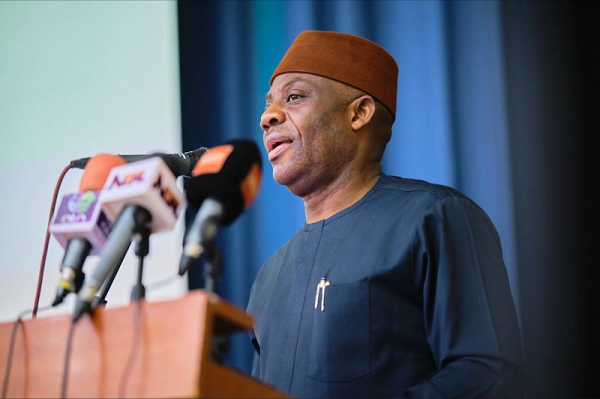-
N60 billion approved by President Tinubu for Almajiri Commission
From Adesuwa Tsan, Abuja
The Minister of Education, Mr. Olatunji Alausa, has warned that the issue of out-of-school children in Nigeria must be addressed urgently to prevent it from escalating into a situation that cannot be managed.
He gave the warning when he appeared before the Joint Committee of the House of Representatives and Senate on Education on Tuesday.
Alausa said it was erroneous to limit the problem to the northern part of the country alone, stating that it is prevalent everywhere and “we must begin to confront this problem or we will be consumed by it.”
He informed the committee that he has met with governors of states in the country, alongside commissioners of education, to discuss ways to curb the rising figures and return the children to the classrooms.
“It is not just about building infrastructure; we need to address this problem of out-of-school children.”
The Minister further said that N60 billion has been approved by President Bola Tinubu for “out-of-school children,” which will be moved to the Almajiri and Out-of-School Children Commission.
“It goes beyond literacy and numeracy; we are going to be teaching them life skills and technical skills,” he stated.
Alausa also urged the National Assembly members to stop moving for the establishment of new tertiary institutions, saying “it has gotten out of hand.”
“We have governors giving us one-storey buildings with 10 classrooms as temporary sites,” he lamented, adding that the system has been “bastardised” and is “decimating the quality of education in Nigeria,” as graduates of such institutions are poorly educated and have literally no life skills.
On how the ministry is helping tertiary institutions to boost revenue to augment low funding by the Federal Government, he informed the committee, “We are providing funding, about N1 billion to N1.5 billion in grants for them to start livestock farming and mechanised farming.”
He also suggested that they should look at setting up endowments in their universities, commercialise their research, and take up consultancy services for TetFund.
The Minister had earlier lamented the poor funding of the Ministry, saying it received N296 billion in 2025.
“The international recommendation percentage of education budget is 2 percent. That is UNESCO’s recommendation, and year after year, we keep falling significantly short. The funding is simply not enough.”
He said TetFund’s contribution to tertiary institutions and others was up to N800 billion, while UBEC gets 2 percent of the Consolidated Revenue Fund, generating up to N573 billion, in addition to support through World Bank commitments.
While emphasising the need for adequate investment in the sector, the Minister stressed that “education and capital development are most important in society. Nigeria has one of the lowest capital development indices in the world.”
The 2024 budget performance showed that the total appropriation was N1,589,389,775 billion, out of which N1,036,484,193 billion was for personnel, N72.124 billion for overheads, and N480,781 billion for capital.
For 2025, a total of N2,517,973,985 billion has been allocated to the ministry, with personnel at N1,633,035,999 billion, overhead at N123,294,832 billion, and capital at N761,643,153 billion.
Alausa said the expected outcomes for the Ministry include increased retention and completion rates in basic education, improved literacy and numeracy, enhanced experience and exposure of Nigerian scholars through foreign education exchange programmes, and skill sharing.
Others include ensuring children from indigent homes are provided opportunities for tertiary-level education and improving equipment and facilities in Nigerian schools to be comparable to global standards.
